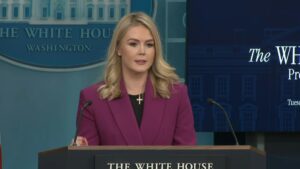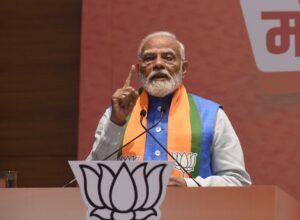US election: Who does Israel want in the White House?
ISTANBUL (AA) — As one of the US’ closest allies and the most powerful lobby in the country, Israel is a significant force in Tuesday’s elections.
American-made bombs have rained down on Gaza and now Lebanon during Israel’s attacks over the past year. Today, millions desperately await a cease-fire in ravaged Gaza and de-escalation in the region.
Although Egypt, with US support, has proposed a two-day cease-fire in Gaza in exchange for the release of four Israeli captives, Tel Aviv is reportedly holding off on any decision until the outcome of the American elections.
According to a former Israeli foreign minister, there would be little to distinguish between the candidates, Kamala Harris for the Democrats and the Republicans’ Donald Trump, in terms of their approach to Middle East policy.
Shlomo Ben-Ami says that their differences would be more pronounced in domestic politics and in their attitude to “European security,” particularly in relation to the war in Ukraine.
– Israeli government favors Trump over Harris –
While Trump and Harris do not share the same views on Palestine, Ben-Ami believes the current issue is not one of “opinions.”
“The question is one of how much political capital you are willing to invest in twisting the arms of an Israeli right-wing government,” he says.
He suggests that Netanyahu’s government prefers Trump over Harris, viewing Trump as a figure who would grant them a “free hand.”
Trump’s unwavering support for Israel aligns closely with the right wing and far right in Israeli politics, favoring policies that enhance Israeli sovereignty, while sidelining Palestinian statehood, including with the recognition of Jerusalem as Israel’s capital.
“The general sense is that Netanyahu, just like Putin in Ukraine, is waiting for Trump, assuming that Trump will give him a free hand and would not put pressure on him,” Ben-Ami said.
Alon Pinkas, a former Israeli ambassador and government adviser, suggests that Netanyahu has shifted Israel’s approach away from its longstanding bipartisan stance in Washington.
“The approach was to keep Israel away from the political turmoil in Washington … not to become a wedge issue,” Pinkas explains.
He expects that Netanyahu “is going to be the first one to call Trump to congratulate him because he does want him to win,” but warns that this support could “backfire” if Harris wins.
– Limits to US backing –
Despite Trump’s track record of seemingly unconditional support for Israel’s government, Pinkas believes his patience may not be boundless, particularly if regional tensions boil over into all-out conflict likely to drag in US forces.
“He (Trump) is war-averse or risk-averse in terms of sending American troops. And right now, particularly in the Iran-Israeli dimension … there are contingencies in which the US is being dragged in there, and Trump will want to try and end that,” he maintained.
“He is very transactional … so I think he will be much more attuned or attentive to what the Saudis, the Emiratis and the Qataris tell him, more than what Israel tells him.”
Ben-Ami agrees, saying that Trump may support Netanyahu’s political plans, but not “to the extent that these would cause a war in which America would be involved.”
In the case of a Harris presidency, Netanyahu is likely to face more resistance in the White House than the current administration under Joe Biden.
To Pinkas, Harris also represents a “gradual” departure from Biden in terms of assertiveness towards Israel. “Harris has been more critical of Israel over the last year,” he says.
“If the war in the Middle East keeps on going on in three different theaters, in Gaza, in Lebanon and … a direct confrontation with Iran, she will have no choice but to deal with it, and trying to do something that the Biden administration has failed to do.”
– Middle East ‘no longer a primary US interest’ –
Despite their differing rhetoric on Israel-related issues, both US presidential candidates have made it clear that they would support Tel Aviv and guarantee its security.
But in the big picture, neither Trump nor Harris offers a comprehensive plan for resolving the long-term Israeli-Palestinian conflict, despite the US’ historical role as a mediator.
Ben-Ami, now the vice president of the Toledo International Center for Peace, criticized Biden for being “the first American president in the last 40 years that did not appoint a peace envoy to the Middle East.”
He argued that American administrations now see the two-state solution as a “lost cause, politically speaking.”
Israel has killed more than 43,300 people in Gaza, mostly women and children, since October last year, according to local health authorities.








